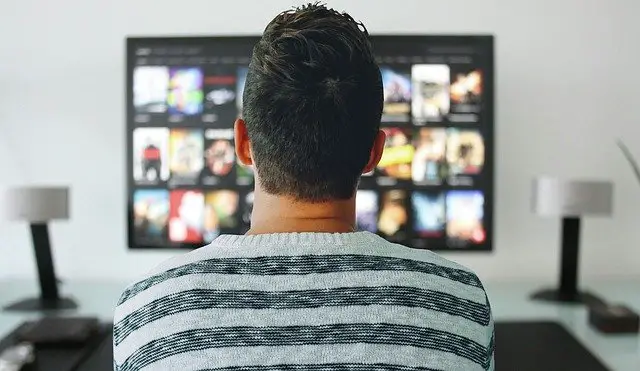You must have heard that one of the easiest and most enjoyable ways to learn a foreign language is by watching movies. Is this a real lucky ticket to fluency without effort? Or is this a waste of time? In fact, this sounds pretty appealing: just imagine yourself sitting in front of the screen for a couple of hours, watching some French film and then… you can talk freely on a language you have never studied. No grammar, no vocabulary, no daunting work at all! Learning a language that easily sounds too good to be true.
Of course, this is something that can never happen. Watching movies can be beneficial only in case you practice more exercises, like flashcards, vocabulary expansion, reading, and writing. Of course, you can watch movies to improve your language, but this might be a part of your learning program, not the only practice you stick to. Still, movies are helpful, and you are recommended to implement them in your language lessons. However, you need to find an approach, combine different methods of learning, and do everything smartly.
Table of Contents
Don’t just watch it – study it
How to approach movies smartly and get the most of them? There are some methods you should pay attention to before you start watching a film. Here they are:
Stay focused
You won’t get anything from a movie if you watch it passively. Teach yourself to become an active viewer that pays attention to everything regarding the language. Focus on what people say in different situations and how do they use speech to express themselves.
Make notes
Watching TV or films in a foreign language, try writing down the words and phrases you don’t know (this is easier when you have subtitles in the language of the original). You will meet numerous repeating and common phrases that are repeated several times. Try to remember them – chances are that these are precisely those words you will need in the future to communicate with real people. These words can become a part of your daily vocabulary.
Break the film into parts
If the movie lasts for one hour and a half and you watch it in one go, you will definitely fail to grasp the main aspects. This will mean exactly what we have previously called “passive watching.” For better language absorption, you should break the entire movie into smaller parts. Let it be a dialogue that happens between two characters for 10 minutes or any other scene. Watch for a couple of times, grasp the idea, and move on.
Watch it again
If you are using flashcards for your language learning, it is hard to imagine that you will remember the word or phrase from a single glance. Study material is something you need to watch a couple of times. Let’s admit it, when you work with text materials, you cannot remember everything in detail before you read and reread them. If you practice writing in a foreign language and think that: “I need a ghostwriter to write a paper for me cheap,” you think in the right direction. Having a sample like that, you can come back to it and grasp the complicated and problematic language constructions better. The repetition is key. The same happens when you watch a movie. Do it again, and again until you are sure that you understand and remember everything correctly. This will help you store information in your brain more efficiently.
Imitate
There is a great saying: “Fake it until you make it.” When watching the movies, be maximally engaged in what you see. Speak along with the actors, try to mimic their pronunciation, copy their tone, and pay attention to the body language.
Watch movies with subtitles
Watch original movies with captions in your native language, you can use them as a real-time study tool and a great dictionary. Of course, you can find words and phrases in dictionaries, but watching a movie and seeing how the idioms work in context is a great study experience you shouldn’t neglect. Of course, you shouldn’t overdo it with the subtitles. Once you’re comfortable enough to understand your target language spoken on screen, it might be time to let go of the subtitles.
Conclusion
Watching foreign movies can bring numerous benefits. They can help you to grasp the language in the so-called “natural environment,” where real people use it in real-life situations. What is more, as a visual medium, the movie provides various non-verbal nuances, such as body language. Films frequently provide more extended vocabulary placed in context, which is much more efficient than using your textbooks to remember the new words and phrases. Paying enough attention to the details, you start understanding how the language works in real-life scenarios. So be attentive and analytical when watching movies, and your studying arsenal will become significantly more extensive.
—
Author bio: Sandra Larson is genuinely interested in linguistics and philology. She believes that the more languages you know, the richer your cultural background is. Sandra studied Spanish and German before, and now she has a plan to learn Chinese. Currently, she works at hew own website Elizabethan Authors where she writes about famous authors.

